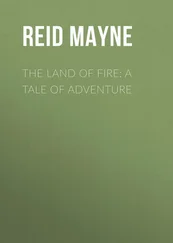Mayne Reid - The Lost Mountain - A Tale of Sonora
Здесь есть возможность читать онлайн «Mayne Reid - The Lost Mountain - A Tale of Sonora» — ознакомительный отрывок электронной книги совершенно бесплатно, а после прочтения отрывка купить полную версию. В некоторых случаях можно слушать аудио, скачать через торрент в формате fb2 и присутствует краткое содержание. Жанр: foreign_prose, foreign_children, на английском языке. Описание произведения, (предисловие) а так же отзывы посетителей доступны на портале библиотеки ЛибКат.
- Название:The Lost Mountain: A Tale of Sonora
- Автор:
- Жанр:
- Год:неизвестен
- ISBN:нет данных
- Рейтинг книги:5 / 5. Голосов: 1
-
Избранное:Добавить в избранное
- Отзывы:
-
Ваша оценка:
- 100
- 1
- 2
- 3
- 4
- 5
The Lost Mountain: A Tale of Sonora: краткое содержание, описание и аннотация
Предлагаем к чтению аннотацию, описание, краткое содержание или предисловие (зависит от того, что написал сам автор книги «The Lost Mountain: A Tale of Sonora»). Если вы не нашли необходимую информацию о книге — напишите в комментариях, мы постараемся отыскать её.
The Lost Mountain: A Tale of Sonora — читать онлайн ознакомительный отрывок
Ниже представлен текст книги, разбитый по страницам. Система сохранения места последней прочитанной страницы, позволяет с удобством читать онлайн бесплатно книгу «The Lost Mountain: A Tale of Sonora», без необходимости каждый раз заново искать на чём Вы остановились. Поставьте закладку, и сможете в любой момент перейти на страницу, на которой закончили чтение.
Интервал:
Закладка:
“True, señor, that’s all. But there are rocks strewn over the llano below, for hundreds of yards out, and so thick we couldn’t take the wagons through them. I suppose they must have fallen from the cliffs, but how they got scattered so far, that puzzles me, though rocks have been the study of my life.”
“So they have, Pedro,” put in Don Estevan. “And you’ve studied them to some purpose. But let us not enter into a geological discussion now. I feel more concerned about something else.”
“About what, your worship?”
“Some memory tells me that Indians are accustomed to visit the Cerro Perdido. Though I can see no sign of human being about it, who knows but there might be?”
This is said after examination of the plain all along the base of the mountain through a field-glass, which Don Estevan habitually carries on his person.
“Therefore,” he continues, “I think it advisable that some five or six ride ahead – those who are best mounted – and make sure that the coast is clear. In case of redskins being there in any formidable numbers, the knowledge of it in time will enable us to form corral , and so better defend ourselves should we be attacked.”
Before becoming a master miner, Don Estevan had been a soldier, and seen service on the Indian frontier, in more than one campaign against the three great hostile tribes, Comanches, Apache, and Navajo. For which reason the gambusino , instead of making light of his counsel, altogether approves of it – of course volunteering to be himself of the reconnoitring party.
In fine, there is another short halt, while the scouts are being selected; half a dozen men of spirit and mettle, whose horses are still strong enough to show speed, should there be Indians and pursuit.
Of the half-dozen, Henry Tresillian is one; he coming up quick to the call. No fear of his horse giving out, or failing to carry him safe back if pursued, and whoever the pursuers. A noble animal of Arab strain it is, coal-black, with a dash of dun-colour between the hips and on either side of the muzzle. Nor shows it signs of distress, as the others, notwithstanding all it has come through. For has not its young master shared with it every ration of water served out along the way, even the last one that morning?
In a few minutes the scouting party is told off, and, after receiving full instructions, starts onward.
The elder Tresillian has made no objection to his son being of it; instead, being rather proud of the spirit the latter is displaying, and follows him with admiring eyes as he rides off.
Still another pair of eyes go after him, giving glances in which pride and fear are strangely commingled. For they are those of Gertrudes Villanueva. She is proud that he, whom her young heart is just learning to love, should possess such courage, while apprehensive of what may come of it.
“ Adelante !” calls out the mayor-domo , who has chief charge of the caravan; and once more there is a vigorous wielding of whips, with an objurgation of mules, as the animals move reluctantly and laboriously on.
In twenty minutes after, all is changed with them. Horse and hybrid – every animal in the train – have raised head and pricked up ears, with nostrils distended. Even the horned cattle to rearward have caught the infection, and low loudly in response to the neighing of the horses and the hinneying of the mules. There is a very fracas of noises, like a Bedlam broke loose, the voice of the mayor-domo rising above all as he cries out,
“ Guarda, la estampeda !”
And a “stampede” it becomes, all knowing the cause. The animals have scented water, and no longer need whip-lash or cry to urge them on. Instead, teamsters and arrieros find it impossible to restrain them, for it were a struggle against Nature itself. Taking the bits between their teeth, and regardless of rein, horses, mules, all rush simultaneously and madly forward, as if each had a score of gadflies with their venomous probosces buried deep in its body.
A helter-skelter it is, with a loud hullaballoo, the heavily-laden wagons drawn over the ground as light-like and with the velocity of bicycles, and making noise as of thunder. For now, near the mountain’s foot, the plain is bestrewed with stones, some big enough to raise the wheels on high, almost to overturning the vehicles, eliciting agonised cries from the women and children inside them. No more are Indians thought of for the time; enough danger without that, from upsets, broken bones, indeed death.
In the end none of these eventualities arise. Luckily – and more by good luck than guiding – the wagons keep their balance, and they within them their places, till all come to a stand again. While still tearing on, they see before them a disc of water lit up by the last rays of departing sunlight, with half a dozen horsemen – the reconnoitring party – drawn up on its edge, in attitude of wonder at their coming after so soon.
But their animals, still in rush, give no opportunity for explanation. On go they into the lake, horses, mules, and cattle mingled together; nor stop till they are belly-deep, with the water up over their nostrils. No more neighing nor lowing now, but all silent, swilling, and contented.
Chapter Four.
El Ojo de Agua
Morning dawns upon the Lost Mountain, to disclose a scene such as had never before been witnessed in that solitary spot. For never before had wagon, or other wheeled vehicle, approached it. Remote from town or civilised settlement, leagues away from any of the customary routes of travel, the only white men having occasion to visit it had been hunters or gold-seekers, and their visits, like those of angels, few and far between. Red men, however, have sought it more frequently, for it is not far from one of their great war-trails – that leading from the Apache country to the settlements on the Horcasitas, so serving these savages as a convenient halting-place when on raid thither. The reconnoitring party, sent in advance of the caravan, had discovered traces of their presence by the lake’s edge; but none recent, and nothing to signify. There were no fresh tracks upon the meadow-grass, nor the belt of naked sand around the water, save those of wild animals that had come thither to quench their thirst.
In confidence, therefore, the miners made camp, though not negligently or carelessly. The old militario had seen too much campaigning for that, and directed the wagons to be drawn up in a corral of oval shape, tongues and tails united as the links of a chain. Lone-bodied vehicles, the six enclose a considerable space – enough to accommodate all who have need to stay inside. In case of attack it could be still further strengthened by the bales, boxes, and alparejas of the pack-mules. Outside the animals were staked, and are still upon their tethers, though without much concern about their running away. After the long traverse over the dry llanos , and the suffering they have endured, now on such good grass, and beside such sweet water, they will contentedly stay till it please their masters to remove them.
Fires had been kindled the night before, but only for cooking supper; it is summer, and there is no discomfort from cold – heat rather. And now at dawn the fires are being re-lighted with a view to desayuna , and later on breakfast; for, though the caravan had unexpectedly run short of water, its stock of provisions is still unexhausted.
Among the earliest up – nay, the very first – is Pedro Vicente. Not with any intention to take part in culinary operations. Gambusino and guide, he would scorn such menial occupations. His reasons for being so early astir are altogether different and twofold; though but one of them has he made known, and that only to Henry Tresillian. Overnight, ere retiring to rest, he had signified his intention to ascend the Cerro in the morning – soon as there was enough of daylight to make the ascent practicable – in hopes of finding game both of the furred and feathered sorts, he said. For in addition to his métier as guide to the caravan – being a skilled hunter as well as gold-seeker – he holds engagement to supply it with venison, or such other meat commodity as may fall to his gun. For days he has had but little opportunity of showing his hunter skill. On the sterile tract through which they have been passing birds and quadrupeds are scarce, even such as usually inhabit it having gone elsewhere in consequence of the long-continued drought. All the more is he desirous to make up for late deficit, and at least furnish the table of the quality with something fresh. He knows there are game animals on the mountain – a mesa , as already said, level-topped, with trees growing over it, besides water; for there is the fountain’s head, source of the stream and lake below. On the night before, he had spoken of wild sheep as likely to be found above, with antelopes, and possibly a bear or two, also turkeys. Now, in the morning, he is sure about these last, having heard them, as is their wont before sunrise, saluting one another with that sonorous call from which they derive their Mexican name, guajaloté .
Читать дальшеИнтервал:
Закладка:
Похожие книги на «The Lost Mountain: A Tale of Sonora»
Представляем Вашему вниманию похожие книги на «The Lost Mountain: A Tale of Sonora» списком для выбора. Мы отобрали схожую по названию и смыслу литературу в надежде предоставить читателям больше вариантов отыскать новые, интересные, ещё непрочитанные произведения.
Обсуждение, отзывы о книге «The Lost Mountain: A Tale of Sonora» и просто собственные мнения читателей. Оставьте ваши комментарии, напишите, что Вы думаете о произведении, его смысле или главных героях. Укажите что конкретно понравилось, а что нет, и почему Вы так считаете.












